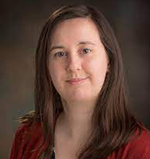Reconstructing Transmission with Genomic Data
Meeting Times:
- Wednesday, July 16, 1:30 PM – 5:00 PM
- Thursday July 17, 9:00 AM – 5:00 PM
- Friday July 18, 9:00 AM – 5:00 PM
Classroom: TBA
Module Summary:
In this era of genomic epidemiology there have been high hopes that sequencing will reveal who infected whom in a way that is not accessible with standard epidemiological investigations. To this end, several methods have been developed, drawing upon techniques from phylogenetics, Bayesian statistical inference, and probability, among others.
This course will describe some of these methods and compare and contrast their assumptions and data requirements. Students will learn to use several of them to reconstruct transmission – who infected whom – in densely sampled outbreaks with the help of pathogen sequence data.
Prerequisites:
This module assumes knowledge of probability and inference covered in an introductory statistical course (common probability distributions, maximum likelihood estimation). All programming will be in R; we provide a tutorial to be completed before the module for any students new to R. We also provide a short primer video for anyone new to working with genomic data.
Module Content:
- Introduction and background for reconstructing transmission with genomic data
- Combining epidemiological and genomic data sources
- Phylogenetic trees and methods to build them
- The mathematics behind transmission reconstruction methods
- Outbreaker2 and TransPhylo hands-on sessions
- Research forefronts, open questions and methods comparison
Instructors

Caroline Coljin, PhD
Professor, Department of Mathematics, Simon Fraser University
Dr. Coljin’s work is at the interface of mathematics and the epidemiology and evolution of pathogens. She holds a Canada 150 Research Chair in Mathematics for Evolution, Infection and Public Health. In my group we develop mathematical tools connecting sequence data to the ecology and evolution of infections. I also have a long-standing interest in the dynamics of diverse interacting pathogens. For example, how does the interplay between co-infection, competition and selection drive the development of antimicrobial resistance? To answer these questions, my group is building new approaches to analyzing and comparing phylogenetic trees derived from sequence data, studying tree space and branching processes, and developing ecological and epidemiological models with diversity in mind.

Jessica Stockdale, PhD
Assistant Professor, Department of Mathematics, Simon Fraser University
Dr. Stockdale works in the Mathematics, Genomics and Prediction in Infection and Evolution (MAGPIE) research group, and is the lead for data analytics and modeling at The Pacific Institute on Pathogens, Pandemics and Society (PIPPS) at SFU. Her research is primarily in infectious disease modeling and genomic epidemiology, with interests in developing modeling methods to help understand disease transmission and its population context, using tools from across math and statistics and particularly using pathogen genomic data.
Required Software:
All programming will be in R, using packages available directly through CRAN. In advance of the module, we provide students with a short tutorial to install R, RStudio and all required packages.
Recommended Reading:
Primary research and tutorial articles will be provided for additional reading.


